With Matcha becoming more mainstream, you might be wondering if too much of it can irritate your stomach, like coffee or some teas do. Is Matcha acidic?
While fruit teas and coffee have high acidity levels, Matcha is a safe bet.
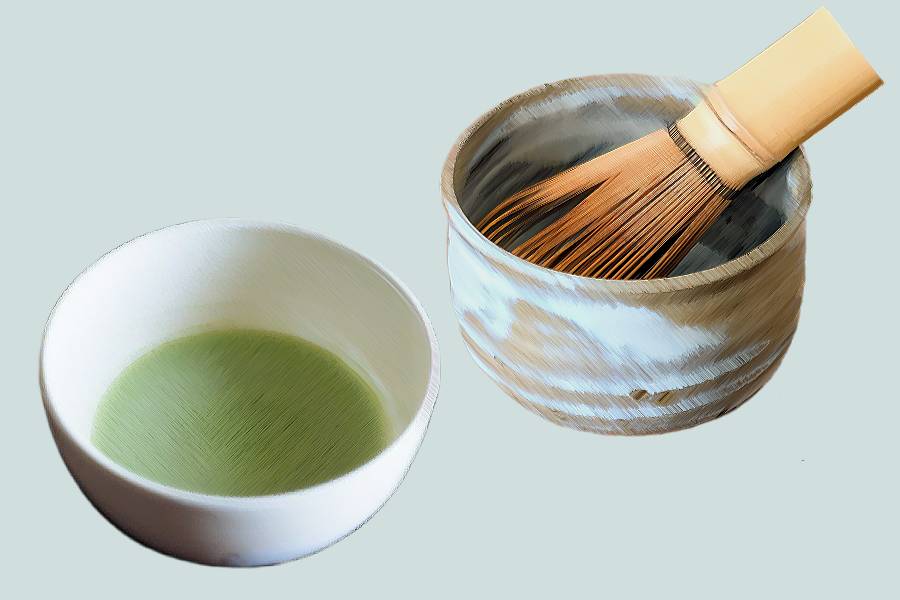
Topics Explored
- What is Matcha?
- So is it Acidic?
- What Can Affect the Alkalinity of Matcha?
- Pros and Cons of Matcha
- Matcha vs Coffee
- More Questions
What is Matcha?
Matcha is essentially green tea that is grown and dried in the shade. Regular green tea is dark because it gets dried under direct sunlight.
Matcha is dehydrated in the shade, helping the tea leaves produce chlorophyll even after being picked. After drying, the leaves are milled into powder, and the stems get removed.
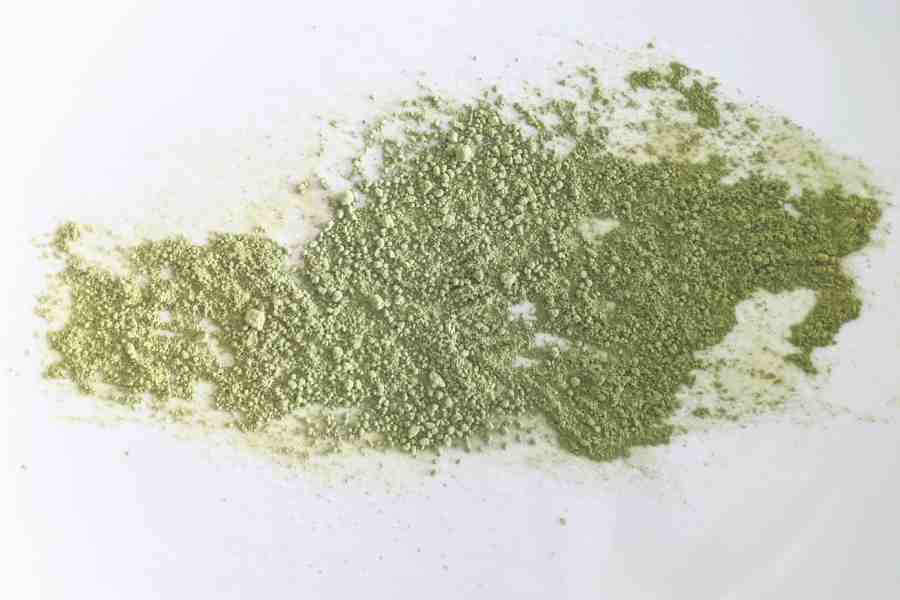
Before becoming your go-to order at the cafe, Matcha was a well-kept Japanese tradition. Nowadays, you can find it in most trendy coffee shops, usually combined with lattes and even pastries.
And who can blame them? Matcha is delicious in both drink and food-form.
Matcha originates in China, but it was the Japanese that perfected the cultivation. The name is also a Japanese abbreviation – “ma” means powder, and “cha” is tea.
The powder gets whisked with hot water using a special bowl and whisk. The tea is full of antioxidants that benefit your body and mind.
Is Matcha Acidic?
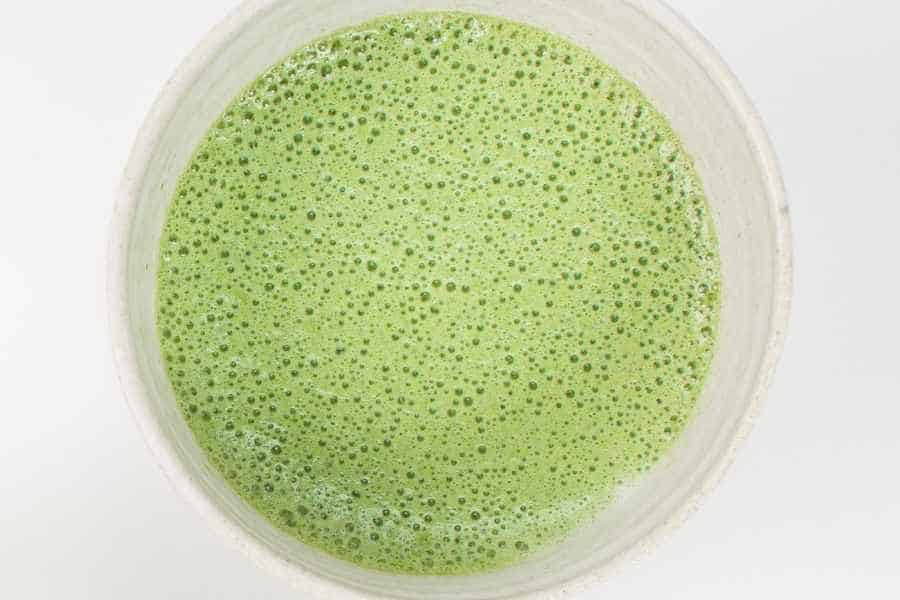
On the acidity scale, the middle or neutral is a pH of 7; anything above is alkaline, and under is acidic. Matcha is not acidic and has a pH level of 9 even though it’s derived from green tea, which has a pH level of 7.
Matcha is more alkaline due to the higher content of chlorophyll.
- Green Tea pH: 7 – 10
- Milk pH: 6.5 – 6.8
- Black Tea pH: 5 – 5.5
- Black Coffee pH: 4.9 – 5.5
- Cola pH: 2.3
What Can Affect the Alkalinity of Matcha?
The Matcha powder on itself is alkaline, but there are certain things that you can inadvertently do to alter it. The preparation method, the liquid used to dissolve the powder, and any added ingredients can make Matcha more acidic.
Steeping Time

Shorter steep time keeps the low acidity level of Matcha. There’s a reason why you should steep tea for 2 to 5 minutes. After 5 minutes, the tea starts releasing more acid, and after 15 minutes, it is highly acidic.
Water Quality
Matcha is adapted to work with Japan’s type of water. To achieve the best taste and preserve the alkaline level, use water with a pH level of 7.
The water shouldn’t be too hard or chlorinated either. Spring water is the best, while demineralized is a no-go.
Additional Ingredients
Make smart choices when adding milk, sweetener, or more water to your Matcha. Sugar and artificial sweeteners are acidic, while milk has a below-neutral pH level of 6.8.
Some bottled water brands are also slightly acidic.
RELATED: Does Matcha Powder Expire?
Pros and Cons of Matcha for your Health
Matcha is more than an aesthetically pleasing drink that everyone seems to go for nowadays. It’s a fantastic superfood that supports your health and well-being. But there are some downsides to it you should be aware of too!
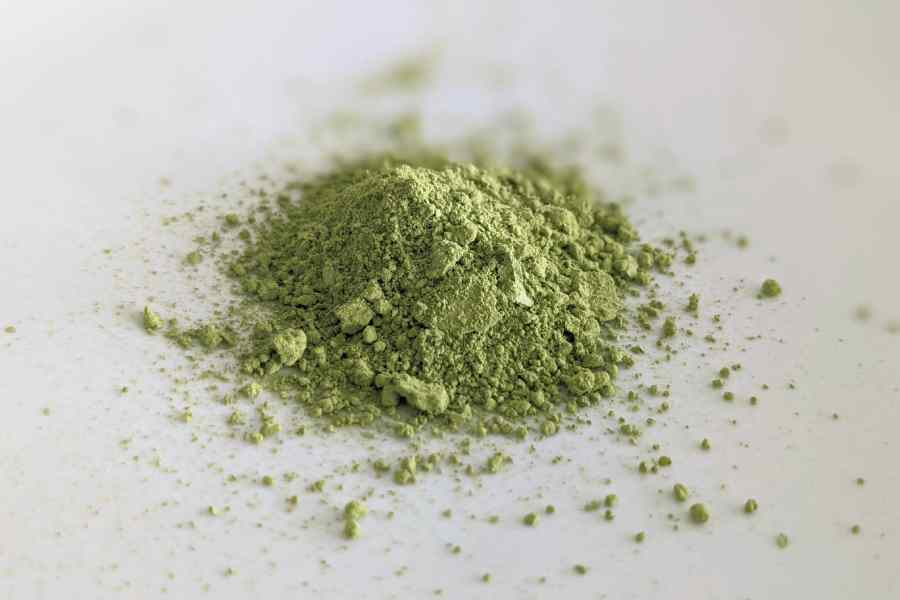
Pros
- Boosts energy levels
- Strengthens immune system
- Lowers risk of heart disease
- Burns fat faster
Cons
- Aggravates GERD
- Increases risk of anemia
- Can cause liver damage
Benefits of Matcha
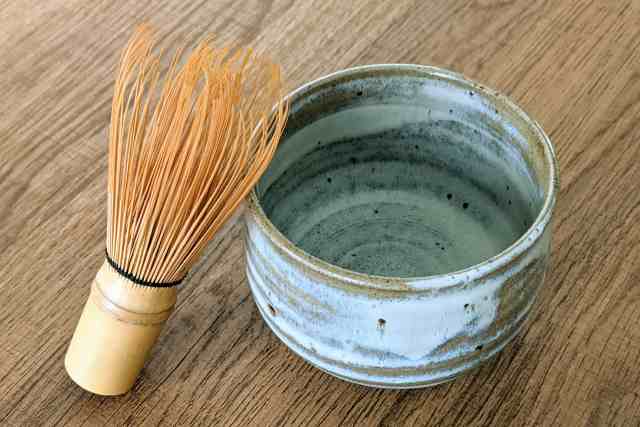
1. Energy Booster
Matcha provides your body with a long-lasting energy boost thanks to the unique combination of caffeine and l-theanine(1). You’ll be awake alert and won’t experience outcomes like raised heartbeat, jitters, or anxiety.
Talk about the perfect substitute for coffee!
2. Fights Infections
The large quantity of antioxidants in Matcha helps build a stronger immune system that responds fast and fights infections at the root.
The anti-inflammatory antioxidant EGCG(2), in particular, binds to cells in the body and represses the growth of destructive microorganisms.
3. Heart Health
Matcha is proven to reduce bad cholesterol levels, triglycerides and help protect your heart from heart attacks or strokes(3).
It’s even more effective than green tea, and introducing it to your diet can help guard your heart’s health.
4. Fat Burning
A balanced diet and exercise are the first step towards losing those few extra pounds, but Matcha is also a great addition.
The catechins molecules in Matcha are believed to aid in weight loss by raising levels of the hormone responsible for making you feel full(2).
Side Effects

1. Upset Stomach
Matcha contains tannins that have an astringent effect on your stomach lining. This can cause GERD or even constipation in those with a sensitive stomach, Matcha newbies, or those that go overboard.
Be careful and stop consuming if you’re feeling unwell.
2. Anemia Risk
The tannins have one more harmful effect – they prevent the absorption of iron in your body. Iron is vital for keeping your hemoglobin levels in place and preventing anemia.
Matcha can decrease the iron absorption by 25%, and anemic people shouldn’t consume it.
3. Liver Toxicity
Too much of a good thing can be bad- the extreme concentration of antioxidants and micronutrients in Matcha can lead to liver damage(2). Your liver cells can begin to break down while processing the vast amount of nutrients from Matcha.
You can experience fatigue, severe abdominal pain, and bloating. Balance is key when it comes to Matcha.
Matcha vs. Coffee
Matcha is a good coffee substitute; it provides the good effects of coffee as energy lift, alertness, and heart disease prevention without the side effects – anxiety, energy slumps, and jitters.
Matcha caffeine content compared to coffee is lower at 105 mg of caffeine per 12 oz. Black coffee, for example, contains 144 mg per 12 oz. Matcha can help you fight tooth decay and gum diseases, prevents oral cancer, and diminishes bad breath!
| Matcha | Coffee |
|---|---|
| ~105 mg of caffeine per 12 oz | ~144 mg of caffeine per 12 oz |
| Bittersweet, toasty, nutty | Bitter, caramelized, cocoa |
| More expensive | Affordable |
| Originated from: China |
Originated from: Africa |
Final Thoughts
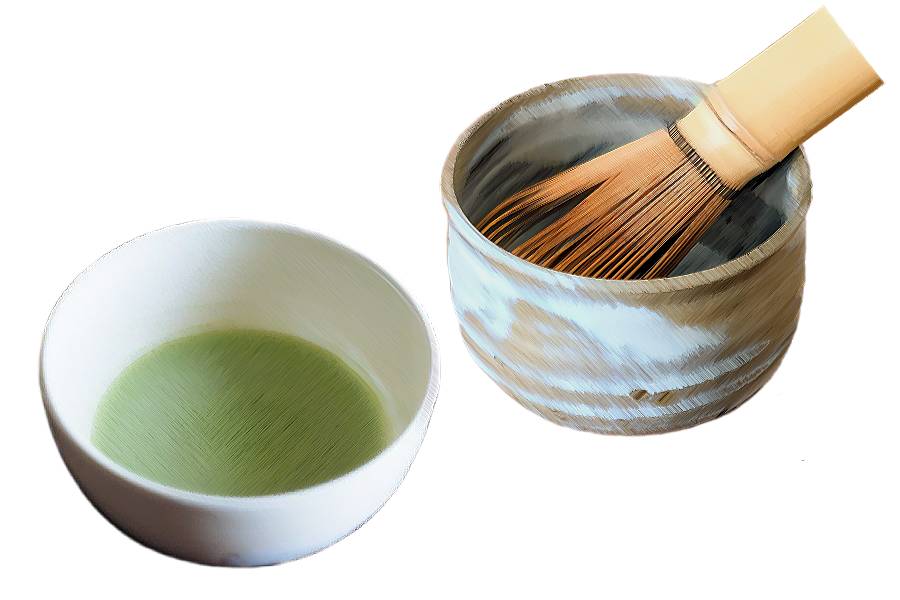
Matcha is highly alkaline naturally, with a ph level of 9, but this level can drop while it gets prepared. In order to answer is Matcha acidic, you have to be aware of the preparation method and ingredients used. Coffee shops can make Matcha acidic with additives.
By preparing it at home, you control the process and have full confidence to answer ‘is Matcha acidic’ or not.
More Questions
Is Matcha bad for acid reflux?
Matcha is less acidic than most teas, but it can still affect your acid reflux. The same stimulant in Matcha that lifts you up can also relax the lower esophageal sphincter. This ban of muscles retains the stomach acid from going up into the esophagus. Keep in mind this topic is not researched enough to draw a firm conclusion.
Is it safe to drink Matcha every day?
It’s perfectly safe to drink Matcha daily as long as you stick to the recommended amount. Moderation is best in everything, so try to consume up to 2 cups or 16 oz a day. Remember Matcha contains caffeine, and you shouldn’t consume more than 400 mg of caffeine daily.
Is it better to drink Matcha or coffee?
Matcha is an excellent substitute for coffee. It’s more nutrient-dense, healthier, fights disease, contains fiber, and it’s easier to make – all you need is a bowl and a whisk. It can help you fight your coffee addiction. But good Matcha is harder to find, and it’s more expensive even if you prepare it at home.
Wondering where your info comes from? We totally understand. Hey Joe only obtains our information from reputable sources. Contents from this article are sourced from the following publications:
- National Library of Medicine: https://www.ncbi.nlm.nih.gov/pmc/articles/PMC6213777/
- National Library of Medicine: https://www.ncbi.nlm.nih.gov/pmc/articles/PMC2855614/
- Nutrition, Metabolism and Cardiovascular Diseases: https://www.sciencedirect.com/science/article/abs/pii/S0939475314000477

